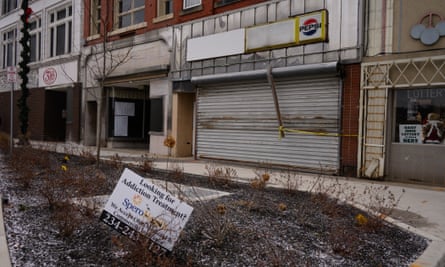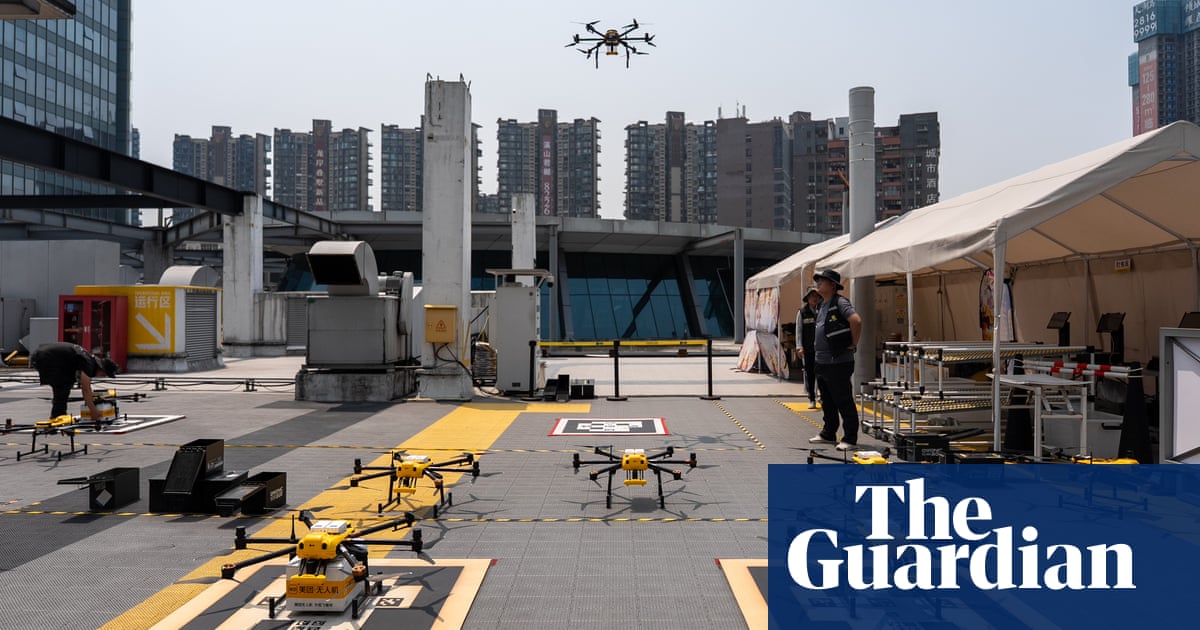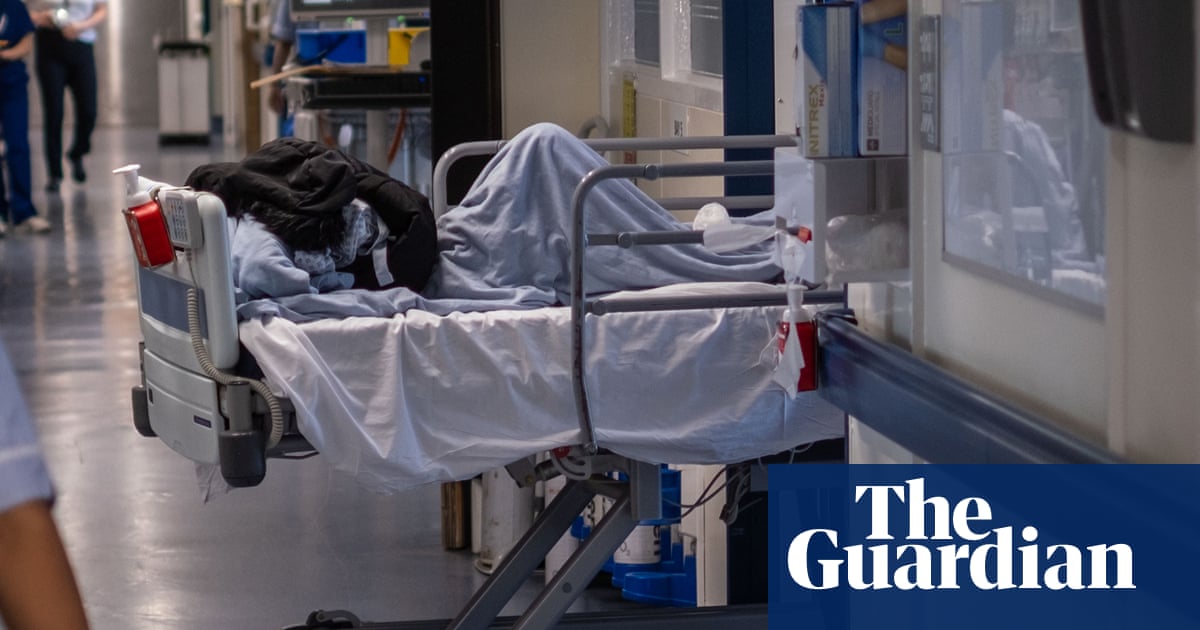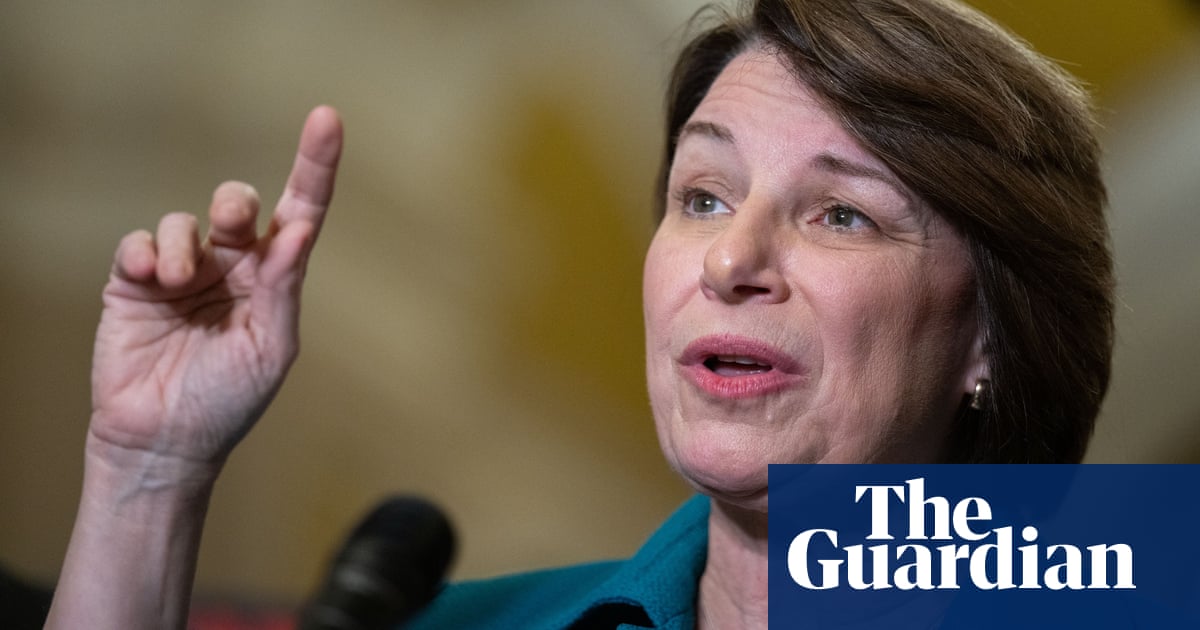The last time Donald Trump was president, he travelled to Youngstown, Ohio, among the most depressed of America’s rust belt cities, and promised voters the impossible.
The high-paying steel, railroad and car industry jobs that once made Youngstown a hard-living, hard-drinking blue collar boom town were coming back, he said. “Don’t move. Don’t sell your house,” he crowed to a rapturous crowd in 2017. “We’re going to fill up those factories – or rip ”em down and build brand new ones.”
None of that happened. Indeed, within 18 months, General Motors (GM) announced that it was suspending operations at its one remaining manufacturing plant outside Youngstown, throwing 5,000 jobs into jeopardy in a community with little else to cling to. Trump’s reaction was to say the closure didn’t matter, because the jobs would be replaced “in, like, two minutes”.
That, too, did not happen. People moved away, marriages broke down, depression soared and, locals say, a handful of people took their own lives.
Ordinarily, politicians who promise the moon and fail to deliver get punished at the ballot box. But that did not happen to Trump either. Instead, he has steadily built up his popularity in Youngstown, a city that was once a well-oiled Democratic party machine but has now turned into one of his most remarkable bases of working-class support.
“Does [Trump] understand at all what you’re going through?” Joe Biden asked Ohio voters during the 2020 presidential campaign, referring directly to the GM closure. “Does he see you where you are and where you want to be? Does he care?”
To which the answer, in Youngstown, has been an astonishing and vigorous “yes”.
Trump might have lost to Biden overall that year, but he became the first Republican presidential candidate in almost half a century to win in Youngstown and surrounding Mahoning County. This past November, he extended his margin there to a decisive 13 points, giving so much cover to local Republican party candidates that they won a majority of county-wide offices for the first time in 90 years.

Anyone seeking to understand the earthquake that has shaken US politics – to the point where a convicted felon, serial liar and twice-impeached former president can return to the White House in triumph, as Trump will do on 20 January – might learn a lot from the disillusioned working-class voters of northeast Ohio.
They tell blunt, profanity-laden stories of watching their city slump ever deeper into decline and express a real bleakness about the future. They see a political class corrupted by big-money donors who, they say, don’t care about communities like theirs. White voters point to conversations about justice – for racial minorities, for the children of immigrants, for women worried about losing their reproductive rights, for transgender teenagers – and question why nobody ever talks about justice for them.
Few expect Trump to fix everything or believe him when he says he will. What they do believe is that the system is broken and corrupt, just as Trump says it is, and that a candidate who promises to tear it down and start again might just be on to something.
“We just want a change, a change in the weather,” a retired aluminium worker wanting to go just by his first name, Paul, said as he sat with a group of friends in a cigarette shop in Struthers, a down-at-heel overwhelmingly white Youngstown suburb once known for its thick clusters of bars, pizza parlours, strip clubs and illegal gambling joints.
Paul and his friends come to the shop most days not to smoke – smoking is not allowed – but to scratch away at lottery tickets and reminisce about the old days, when a single factory salary could support a whole family and the main drag in Struthers was packed every Friday night with working men flush with their weekly pay packet.
Back then, a local mafia ran the gambling rackets, which were secreted away in the back rooms of laundries or in private clubs posing as something innocuous like a knitting circle.
Now that same drag, the Youngstown-Poland Road, is reduced to a handful of pawn shops, dollar stores and auto repair shops in half-deserted mini-malls. The high-paying factory jobs started disappearing in the late 1970s with the closure of Youngstown Sheet & Tube, based in Struthers, and the bars and other businesses followed soon after. The mob was broken up in the late 1990s, ceding its turf to small-time street gangs who now run the drug rackets and make the locals a lot more nervous.
“We feel left behind,” said another cigarette shop patron, a former railroad worker who wanted to be known just as Joe. “People who’ve lived here all their lives are working two or three jobs just to pay their bills.”

Insecurity is woven into the fabric of Youngstown now. Part of the reason Paul, Joe and their friends come to the cigarette shop each morning is to make a show of strength in the front room and deter would-be burglars. “There’s a corner gang on every street,” the owner of Cigarettes 4 Less, Brian Acierno, said. “There’s no organisation. People get shot and killed wherever.”
When Youngstown first sank into decline in the 1980s, voters turned to a populist congressman named Jim Traficant, a Democrat who had a Trump-like disregard for the ordinary rules of political decorum and was widely adored because he would stand up for his constituents in Washington and yell at his colleagues to stop ignoring them.
Traficant was also a crook, with long-standing ties to the Youngstown mob and a pattern of taking bribes and falsifying his taxes that eventually sent him to prison for seven years – but most of his working-class voters didn’t care. In their view, politics was corrupt and government authority fundamentally untrustworthy, but he at least was on their side. “We got the best politicians money can buy,” Joe the former railroad worker joked.
Now they see the same virtues – and the same flaws – in Trump. As Acierno explained: “The Democrats and the Republicans are all a den of crooks. Only one side lies about being crooks, and one doesn’t. If you’re going to be a crook, I’d rather know it than be lied to.”
Trump, in other words, comes across as someone who doesn’t pretend to be anything other than what he is, and that perceived authenticity counts for more with many Youngstown voters than his character flaws or even his policy positions. They’d rather have his gut instincts, ugly as they often are, over the carefully scripted messaging of a Democrat like Kamala Harris or even a mainstream Republican.
Tex Fischer, a Republican state representative who cut his teeth working on Mitt Romney’s doomed 2012 presidential campaign, said Trump had done the party a huge favour by ripping the old order apart because it chimed with voters’ anti-establishment instincts and gave them real hope for the change they thirst for.
“When Romney came to Youngstown,” Fischer recalled, “he wore blue jeans and rolled up his sleeves, and nobody bought it. Trump doesn’t pretend – here he comes in his suit and tie and gold jewellery, and people respect that.”
Local Democrats don’t necessarily disagree. “American voters have a unique ability to smell bullshit, and they smell bullshit with the Democrats,” said Dave Betras, a former Democratic party county chair who believes his party’s brand has to be rebuilt from the ground up.
Betras said Trump’s success was a symptom of the Democrats’ failure to address the catastrophic impact of international trade agreements on manufacturing jobs in the US – a failure he pins on Bill Clinton and Barack Obama – and its further failure, under Obama, to take any meaningful action against Wall Street or the big banks after the housing collapse of 2007-08.
after newsletter promotion
“Most Americans think the system is rigged. And Trump shuffled the deck on us,” Betras said. “Not only does Trump say this thing is rigged, but he says: ‘I know, because I rigged it. I was part of the rigging.’”
Trump, in other words, has exposed the Democrats as hollow and ineffectual as much as he has proposed any viable alternative. Few issues illustrate that better than a catastrophic 2023 train derailment in East Palestine, 15 miles south of Youngstown, that filled the air and local creeks with a toxic brew of burning chemicals that have severely compromised local residents’ health.
President Biden did not visit for a year, whereas Trump showed up the same month and distributed Trump-branded water off a truck. His future vice presidential pick, Ohio senator JD Vance, wrote letters to the White House to demand a more vigorous response. That was enough to sway local residents like Jami Wallace, a lifelong Democrat who now campaigns full-time to publicise the impact of the disaster.
“[The Biden administration] abandoned us for money,” she said after listing the physical symptoms she has suffered: hypothyroidism, asthma and a periodontal disease that has cost her three teeth. “That’s what people need to stand up and realise. It’s what they do to communities they think won’t stand up for themselves.”
Wallace agreed that distributing water was not much of a response either, but it earned Trump her vote all the same. “It was more than we got from the Biden administration,” she said. “We never got one bottle of water from them.”
In contrast to other parts of the country, where political disagreements over Trump have ended lifelong friendships and split families apart, Youngstown is remarkable for the consensus between people of opposing views about the underlying problems and the frustrations that stem from them. They disagree only on the remedy.
Some Trump supporters are actually alarmed by parts of his platform – one cigarette shop patron said he was worried the future administration might make his kidney dialysis unaffordable – but their anger at the Democrats outweighs those concerns.
Some anti-Trump voters, conversely, agree that the Democrats have abandoned the working class but believe that backing Trump is the worst possible answer. “I never liked Trump even when he was only a builder in New York … because he stiffed union workers and he generally seemed like a douche bag,” said Tim O’Hara, a former president of the United Auto Workers (UAW) union at Lordstown. “One thing I wasn’t then and I’m not now is a racist, misogynistic, uninformed dipshit who enjoys supporting a rapist, felon, traitor … These people have no clue yet what they’ve done, but they will find out.”

Then there is a third group of voters who loathed both presidential candidates and wished they’d had some other choice. “We were screwed either way,” said Sonja Woods, one of the GM workers forced out in 2018 who is also an official with the UAW. “We’ve been lied to, let down. It’s disappointing.”
Woods’ personal story expresses much of the heartache and frustration felt across the community. After the closure of GM’s Lordstown plant – presented not as a closure at first, but as something more temporary – she was forced to commute to a GM job in Kentucky. Between the cost of renting an apartment and driving back and forth, she lost money over the next six years and had to rely on her husband’s salary to make ends meet. When she returned to Youngstown to work for a car battery company called Ultium, a new joint venture between GM and a South Korean firm, she was devastated to see that the old Lordstown plant, once a symbol of US industry, now belonged to Foxconn, a Chinese company. The job losses had gutted the community, including a number of schools and businesses that had shuttered in her absence.
“It was desolate, eerie,” she said.
Woods, like many in Youngstown, sympathises with Trump’s zero-sum view of the world – that if one group is benefitting, it is usually at the expense of another. Seeing Afghan refugees move into government-subsidised housing when she had to finance her move to Kentucky infuriated her. Reading about Biden’s plans to forgive student debt when she paid off her daughter’s student loans in full struck her as deeply unfair.
She was unwilling to give the Biden administration much credit for spurring clean-energy businesses like her current employer, and she was too angry at GM to place much, if any, blame on Trump for allowing the old plant to close. What she saw, rather, was a general indifference from the political class, especially now that Ohio is no longer regarded as a swing state. “Nobody showed up in Youngstown this time, not Trump or Kamala,” she observed. “There are a lot of bitter people, and I’m one of them.”
Conversation at the Struthers cigarette shop reflected many of these complex, contradictory feelings. The retired blue-collar workers offered hints of the misogyny O’Hara mentioned – they said they didn’t like Harris’s “Hollywood girlboss” energy – and clearly responded to the Trump campaign’s aggressive but unsubstantiated charge that the Democrats were more interested in subsidising gender reassignment surgery than in helping working people.
None, though, were Trump ideologues. They spoke with contempt of two Maga true believers who came into the cigarette shop and started swinging fists at anyone who disagreed with them. Their worries were strictly about the cost of living and taking care of the friends they’ve loved for decades and what it means to be working class in an era that has either outsourced or mechanised the work they used to do.
“They are waiting for us older white guys to just die and get out of the way,” Paul the retired aluminium worker said. He did not say it forlornly, though. He and his friends are tough people, and nobody in Youngstown is going down without a fight.

.png) 3 months ago
31
3 months ago
31













































